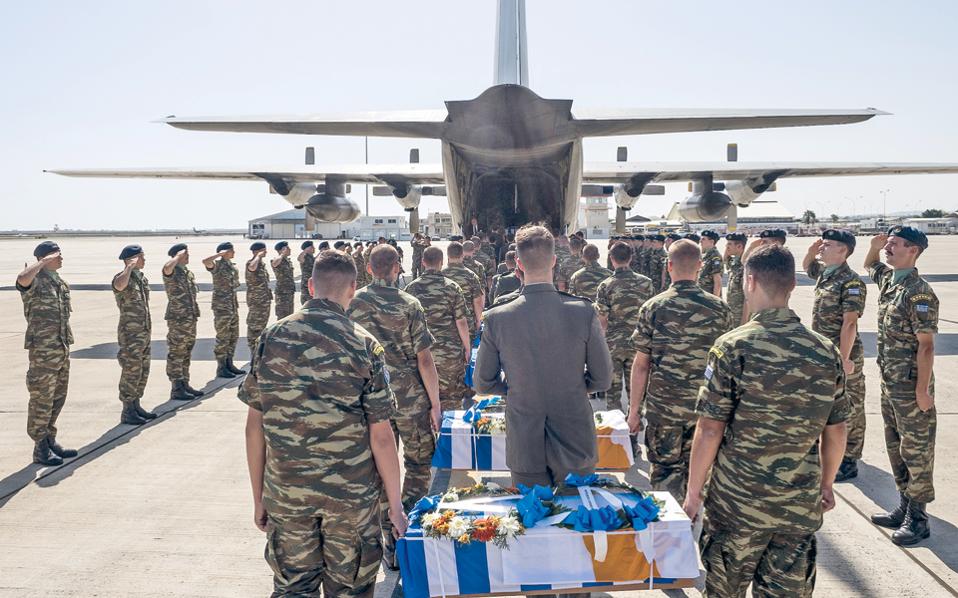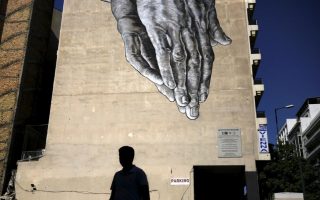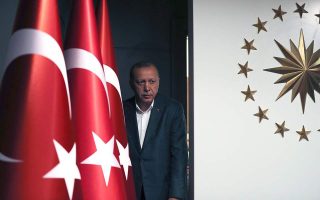Leaving no man behind

I felt a sense of pride last Wednesday as the Greek state finally carried out its duty towards a group of our compatriots who died for their country. It took 42 years for the truth to come out but eventually it did.
In July 1974, a group of young men – most from an agricultural background – found themselves serving in the Greek Army’s Special Forces. They received orders to go on a particularly dangerous mission without knowing their final destination or the kinds of risks it entailed. Their aircraft was shot down by friendly fire amid the chaos that prevailed in the first days of the Turkish invasion of Cyprus.
A lot has been heard and written about the incident since then. The most likely scenario is that it was a case of the kind of human error that is made in the fog of war. Someone failed to notify that Greek aircraft were on their way from Greece, or felt that it was best to keep the mission a secret for security reasons, even if that meant endangering the lives of the Greek commandos.
In the aftermath, a sense of guilt and a desire to cover up the mistake prevailed. In an effort to hide the fact that there had been a Greek operation, the aircraft was buried along with the bodies of the 15 Greeks. A memorial was erected on the remains, where ceremonies to commemorate the fallen took place every year. However, rumors and whispers on whether the Noratlas was actually buried there, along with the remains of the commandos, persisted. No one wanted to become involved in the issue – whether in Greece or Cyprus. The young men’s relatives went on with their lives with their questions unanswered and felt they had never properly honored their dead, pushing the pause button on their family drama.
Very few insisted on the need for an excavation that would dispel the myths. The leader of the effort was a Cypriot civil servant, Xenophon Kallis, who persisted and succeeded. He traveled across Greece collecting DNA samples from relatives and pushed for the excavation, feeling that the dead deserved better treatment. He was taking a major risk because there were many who argued that nothing would come of it. It took a lot of research and systematic excavation to unearth the debris, the remains and, ultimately, the truth.
Last Wednesday, Cypriot President Nicos Anastasiades apologized on behalf of his country to the relatives who had traveled to Cyprus to accompany their lost brothers and uncles back home. Later on, Greek President Prokopis Pavlopoulos and Defense Minister Panos Kammenos welcomed them in Athens with full honors.
In our days, there are very few moments when one feels that the Greek state is keeping up with conventions. It is important to know that what is considered routine in other countries, the “leave no man behind” dogma, also applies in Greece.



